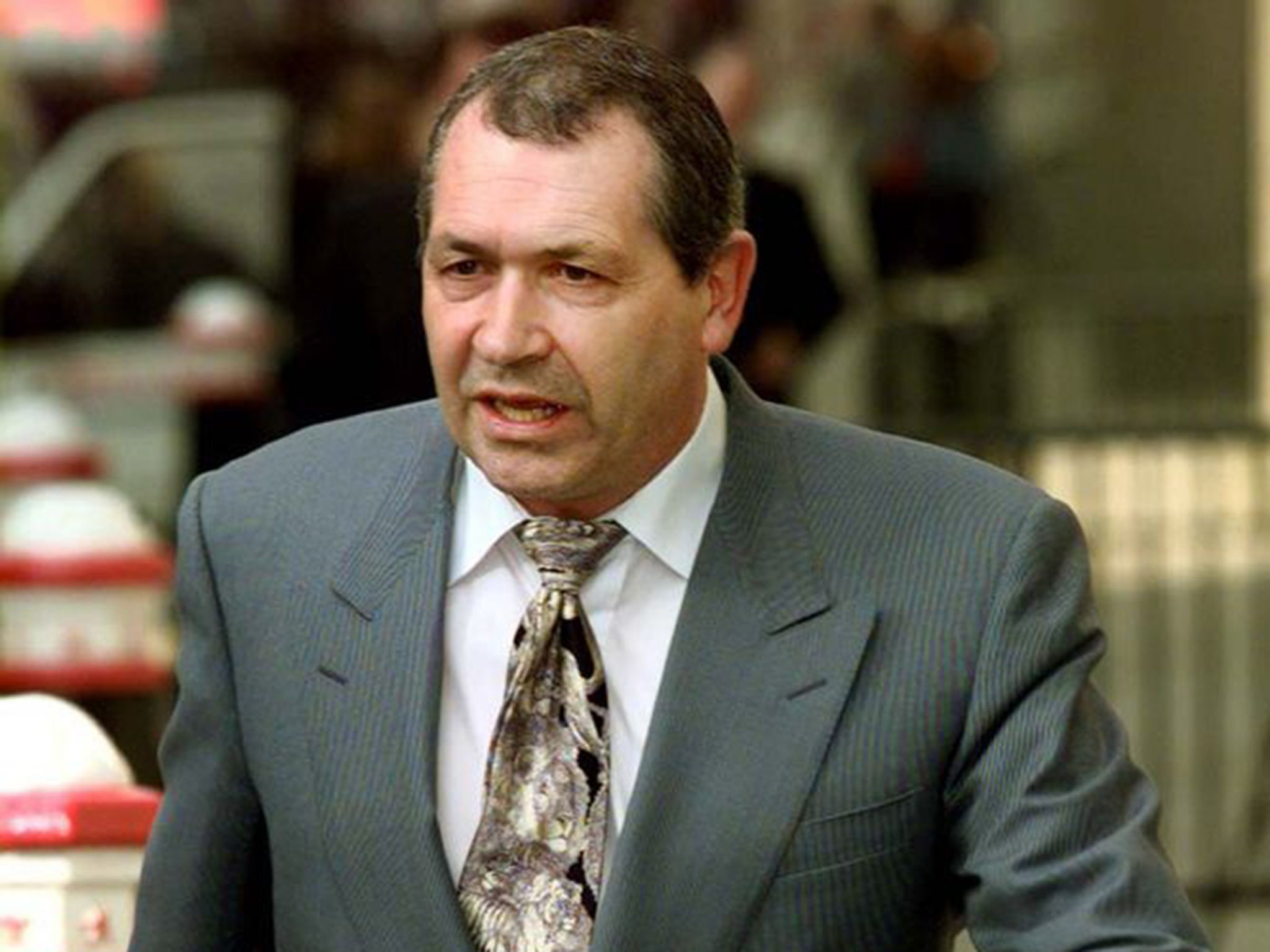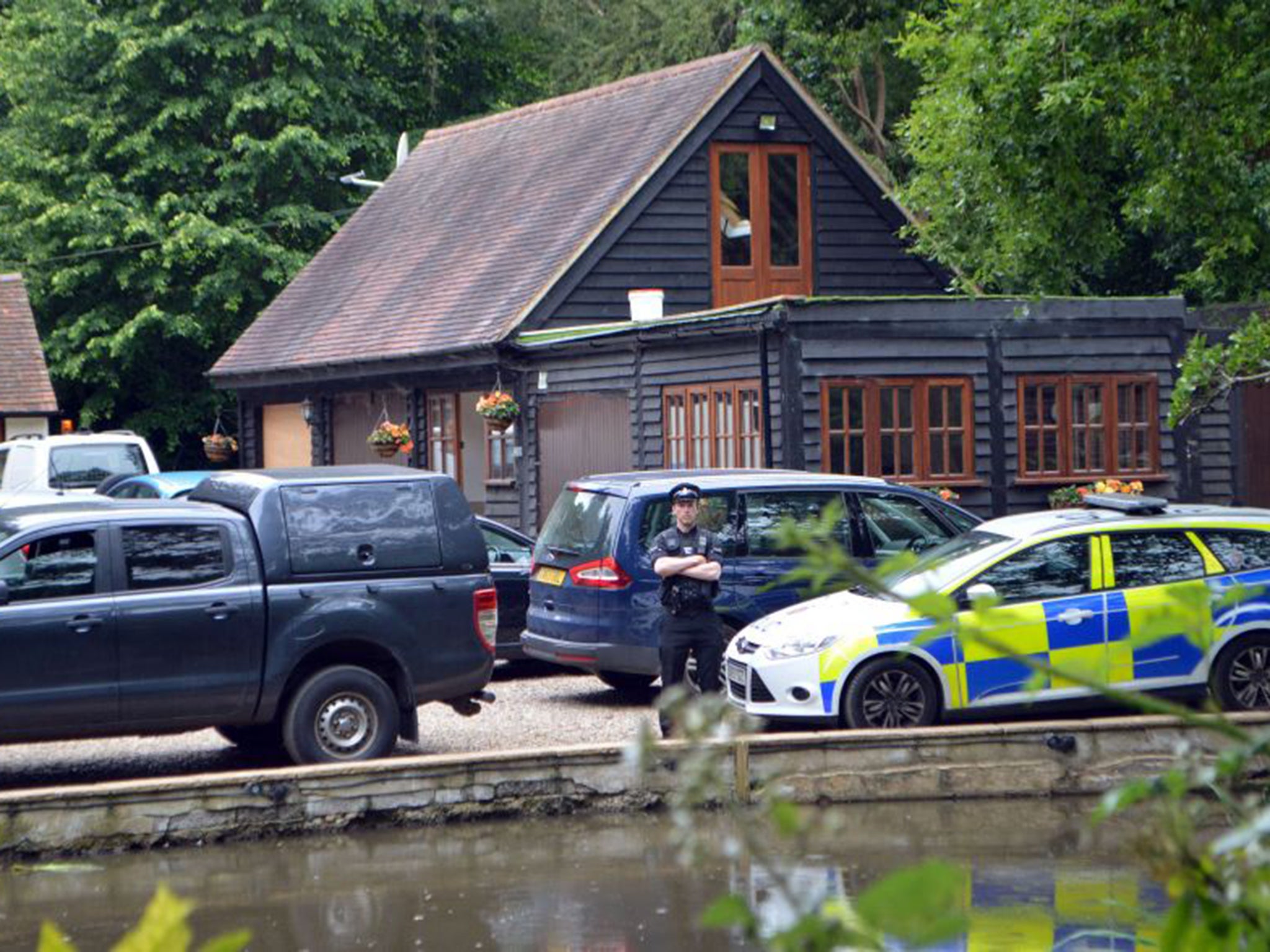John 'Goldfinger' Palmer: Murdered fraudster was under surveillance
UK police heard ‘Goldfinger’ doing business with international crime bosses

A top-secret surveillance operation monitored gunned-down timeshare fraudster John “Goldfinger” Palmer for at least eight years up until his death two weeks ago, it can be revealed.
The British operation, which drew upon listening devices placed by Spanish law enforcement, amassed a treasure trove of intelligence on organised crime figures from at least 2007. Fears about the operation being compromised by corrupt police officers resulted in it being established at a remote RAF base in the north of England.
A four-man team, some of whom retired during the course of the operation but were kept on for operational and secrecy reasons, was fed a daily diet of information about Palmer’s meetings and associations as he flitted around the globe and between Britain, Tenerife and mainland Spain.
Essex detectives investigating Palmer’s killing have requested help from the Spanish authorities about possible motives and suspects. It can also be revealed that Palmer, found dead in the garden of his Essex home in June, was shot in the chest and leg by a low-calibre weapon firing ammunition designed to cause maximum fragmentation inside the target.
The assassin had cut a hole out of a panel in the fence that surrounded the dead man’s secluded garden. Police have removed the panel for further examination.

The surveillance operation was based at an unlisted office within RAF Spadeadam, on the borders of Cumbria and Northumberland. The intelligence gleaned from the surveillance of Palmer and his associates led to a myriad of other operations being set up.
They picked up Palmer doing business with crime bosses from the UK, Russia, Romania and Spain, and created an intelligence file that read like a who’s who of organised crime, according to sources.
One former intelligence source with the Serious Organised Crime Agency, forerunner to the National Crime Agency, said: “They were being fed intelligence by the Spanish including phone calls and other surveillance material. It was kept as quiet as possible because of fears about corruption issues within British law enforcement, and legal issues surrounding the operation’s involvement with the Spanish and the obtaining of intelligence from those bugs.”
Palmer was charged with money laundering and fraud in Tenerife in May and was on bail. He was reputedly worth £300m, but investigators believe that figure was greatly exaggerated. In May 2005 he was declared bankrupt and all his assets, including seven timeshare resorts, were taken over by a trustee in bankruptcy. British police believe a number of his assets were taken over by the Adams family, the north London crime gang.
Spanish investigators tracking down Palmer’s assets found he owned a complex network of 122 companies, many offshore in the Isle of Man, Madeira and the British Virgin Islands, as well as 60 offshore bank accounts. The accounts were seized and the timeshare resorts were sold off for approximately £30m, mostly to Russian investors.
Palmer was sued in a group action by many of his thousands of victims and was ordered to repay them £4m.However, Spain’s tax authority seized the bulk of the money raised from the asset sales, leaving his victims with little prospect of recovering their money. He also spent around £5m in legal fees.
A source on the financial investigation estimated the criminal’s fortune to be nearer to £50m. The source said: “Palmer said he blew a huge amount of money in the 1990s on cocaine and girlfriends. He had a massive cocaine habit and the lifestyle to go with it – the private jet, the yacht, the Ferraris.
“He had four or five girlfriends at any one time, and would fly around the world on his private jet, to Barbados, Russia, the US, Germany, France, Switzerland. He also said he spent a fortune paying off judges, police officers and politicians in Tenerife.
“He said he once flew a private jet back from Russia full of cash. He was stopped at Madrid airport and bribed a policeman with a suitcase full of cash to turn a blind eye. Palmer had millions coming in in cash but blew millions at the same time. He used the 60 offshore accounts like personal bank accounts. His finances were complete chaos. So much of his business was done in cash, there was always a mountain of cash lying around in his Tenerife office. Literally stuffed in suitcases or lying around the office. He never paid tax and thought he would get away with it by bribing officials.”
Palmer’s yacht – Brave Goose of Essex – seized by a Spanish court in 2001, is worth much less than its reputed £1m value. An expert valued it at £400,000 but said it would cost £250,000 to make it seaworthy. “If you untied it from the dock it would sink,” the source said. Palmer’s collection of classic cars from the 1940s and 1950s, worth around £500,000, was allowed to corrode in the sea air in a Tenerife pound.
While Palmer was declared bankrupt and was officially broke, his partner Christina Ketley, whom he met when she worked for him as a timeshare rep in the 1980s, was not. The house in South Weald, Essex, is in her name, as is a two-storey flat by the sea in south Tenerife. Ms Ketley, 55, is a director of seven companies in Spain and five in the UK. Prosecutors recently tried, but failed, to have her assets frozen.
She is facing fraud and money-laundering charges in Spain, and could be jailed for up to eight years if convicted. Last week prosecutors said they expect the case against her and nine others, including two of Palmer’s nephews, to go ahead at Madrid’s National Court.

Prosecutors alleged Ms Ketley ran Palmer’s business while he was jailed in the UK (he was sentenced to eight years for fraud in 2001, serving four). Sources close to Palmer insist he had no intention of pleading guilty to charges in Spain and a senior prosecution source described suggestions of a plea bargain as “pure fantasy”.
Palmer was due to fly to Madrid for a defence strategy meeting when he was murdered.
The source said: “John Palmer was not a grass and he had no intention of becoming one. We believed there was every chance the case against him would have been thrown out.”
Before his death, friends say he was helping Ms Ketley run her Tenerife restaurant. He had his bail varied to return to Britain for surgery.
